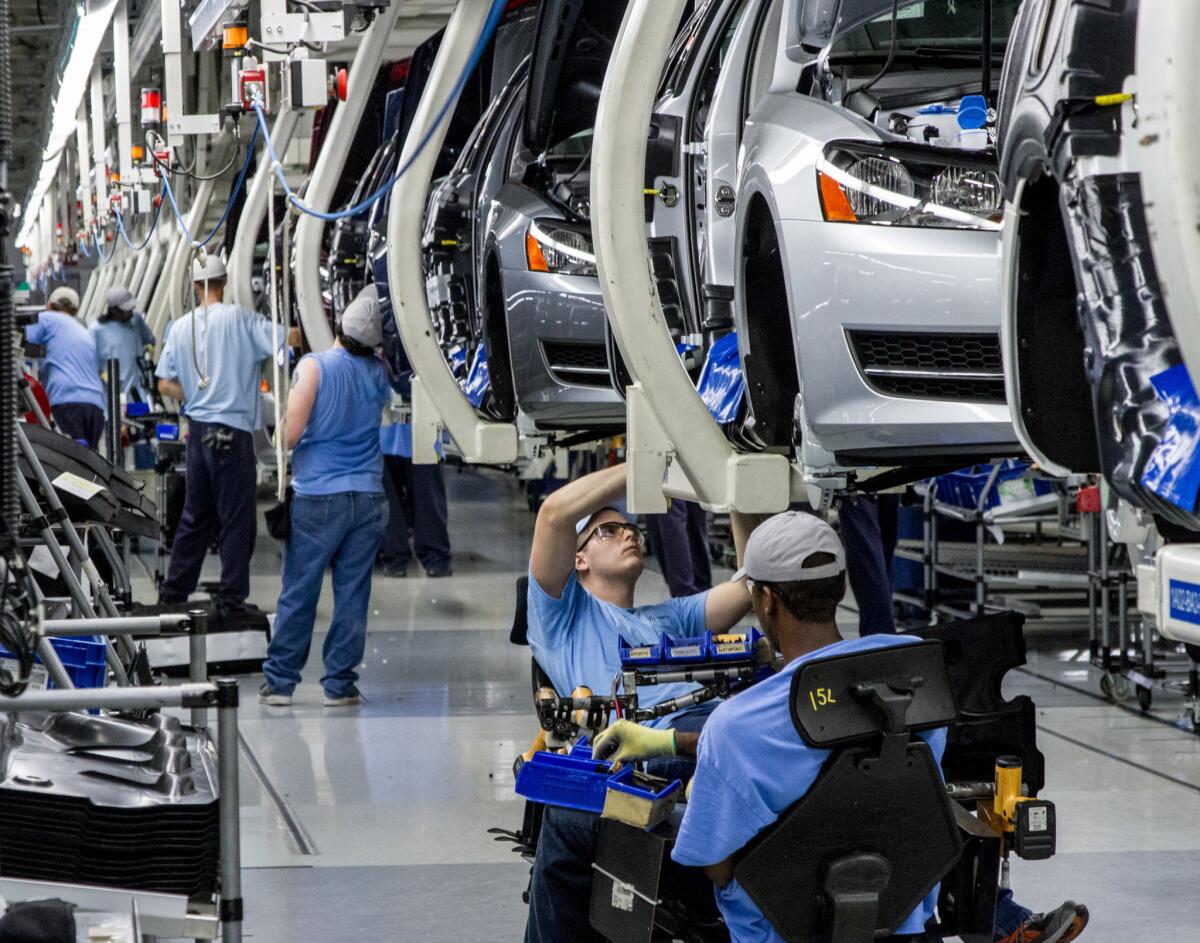Tennessee GOP feels buyer’s remorse as union vote is held at VW plant

Organized labor has become a fixture in U.S. politics and elections, donating money and manpower mainly to Democratic candidates. So it shouldn’t surprise anyone when Republican officeholders try to persuade workers not to join a union.
That’s happening now in Tennessee, where the United Auto Workers union is trying to persuade workers at the Volkswagen assembly plant in Chattanooga to join its ranks. And while it seems perfectly fair for pols to urge workers to reject a union in this week’s vote, some elected officials in Tennessee appear to be taking their advocacy a step too far.
State Sen. Bo Watson, the Speaker pro tem, said Monday that if workers voted to unionize, it would jeopardize any future financial incentives the state might offer VW. That’s no small threat; federal, state and local governments ponied up more than half a billion dollars’ worth of aid for the initial 1,400-acre plant, which employs 3,200 workers. About half of them are the target of the UAW’s organizing drive.
VW is now shopping around for a site in North America to build SUVs. It has only two production facilities on the continent today: Chattanooga and Puebla, Mexico. So states are likely to wage a tax-incentive bidding war over the new factory similar to the one over the Chattanooga plant.
Opponents of the union complain that VW is supporting the UAW’s efforts. Republican Gov. Bill Haslam has publicly warned that the organizing drive could affect more than just VW -- non-unionized auto parts suppliers may shy away from Chattanooga if VW goes union.
Arguments like that are fair game. So are the warnings by politicians that unions will turn Chattanooga into Detroit (the current iteration, not the one from the 1960s).
But Watson’s remarks went one crucial step further, saying that the state would retaliate against the company financially if its workers unionized. You might argue that Watson’s position is actually a good-government one; chasing industrial investment with tax incentives smacks of crony capitalism. Throwing subsidies at the likes of VW also tilts the playing field in favor of one global competitor over the others, and a foreign one at that.
The problem for Watson is that Tennessee has already embraced this sort of government interference in the marketplace, with gusto. The incentives given to VW in Chattanooga may have been the largest ever for an automaker in the United States.
And Tennessee is hardly the only player in this game. Seemingly every auto factory built in the last few decades has been supported by special tax breaks and other public subsidies, as Southern and western states worked to lure automakers from Japan, Germany and South Korea.
The comments by Watson, Haslam and other Republican pols in Tennessee sound like buyer’s remorse. VW isn’t like the Asian automakers that resolutely resist unionization. Integrating workers into corporate decision-making is part of VW’s way of doing business; its German plants all have labor-management “works councils” that the company considers vital to productivity, morale and innovation.
Importing that concept into the United States, however, apparently can’t be done legally unless the workers are unionized. That helps explain why VW isn’t opposing the UAW.
If Tennessee’s Republican leaders don’t think a unionized VW would be good for the state, they’re free to make that case -- short of threatening the company with financial harm. But they should have taken a closer look at the company they were wooing before they outbid their neighbors for VW’s Passat plant.
ALSO:
In Turkey, troubling signs of authoritarianism
Another American on the government’s kill list
Readers’ ideas for stopping wrong-way drunk drivers
Follow Jon Healey on Twitter @jcahealey and Google+
More to Read
A cure for the common opinion
Get thought-provoking perspectives with our weekly newsletter.
You may occasionally receive promotional content from the Los Angeles Times.











